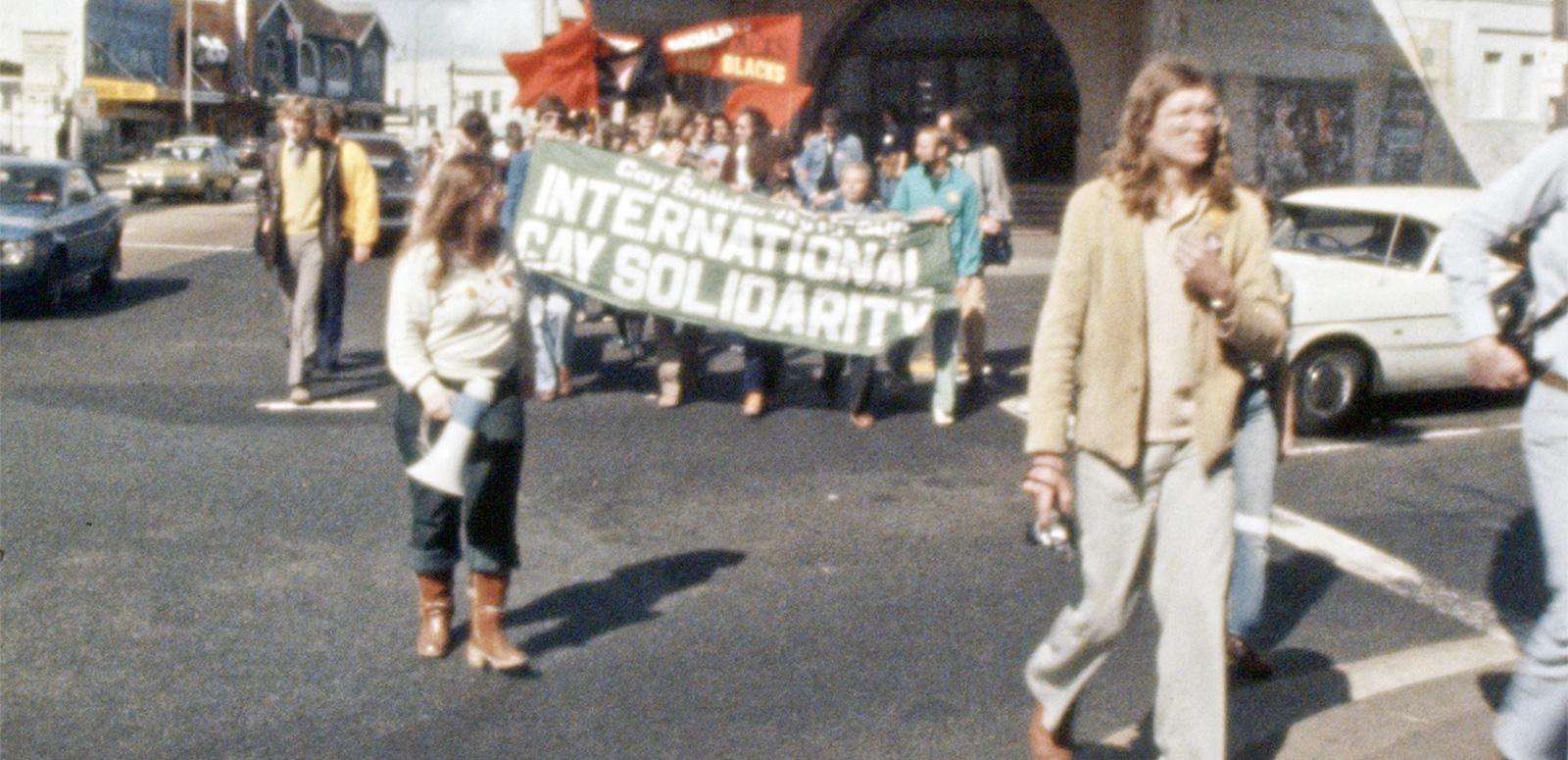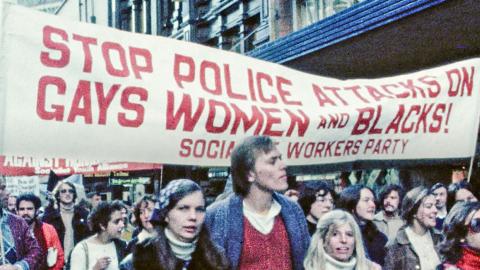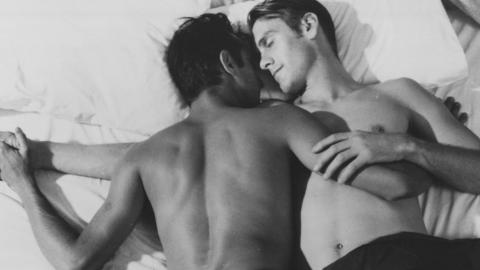The NFSA celebrated Sydney WorldPride in February 2023 with a look back at news file footage from seminal lesbian and gay rights protests in Sydney, 1978. Guest contributor Diane Minnis, a co-chair of First Mardi Gras Inc., recalls her involvement in the 'Drop the Charges' campaign that followed the police attacks and arrests during the first Mardi Gras parade in June 1978. A few weeks later, 2,000 people marched in what was then the largest gay rights demonstration in Australian history.



